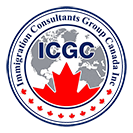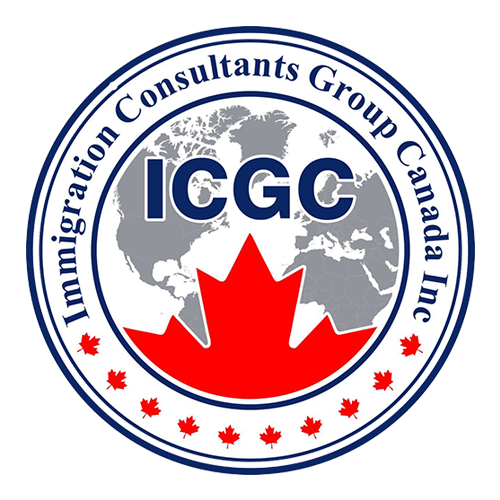The (Sometimes) Hidden Barriers to Immigration
How many times have we experienced situations where we get in a cab and start a conversation with the driver. Often, they have an accent and are obviously immigrants. We asked them where they’re from, why they came to Canada, and where they went to school. How many times have we heard “I am an engineer, but I cannot get licenced to work in my chosen field in Canada”. This scene repeats itself like time and again everywhere; in cabs, the service sector, restaurants. Each province in Canada has its own distinct process and organizations for certifying and licensing skilled professionals.
For many foreign doctors, for instance, transferring credentials to the Canadian medical system is an incredibly daunting process. To practice medicine in Canada, doctors must have a recognized medical degree and pass qualifying exams. Canadians and permanent residents who attended an international medical school have been lobbying provincial governments to change the requirements that prevent the majority of them from getting residencies, the training positions required before they can work independently.
“The federal government is starting to acknowledge the degree to which that trained, qualified, capable and eager internationally-trained medical professionals who are in Canada are not able to practice their trade” said Daniel Berthard, CEO of the Institute for Canadian Citizenship.
A poll conducted by polling firm, Leger, found one of the main things keeping new Canadians from recommending Canada to immigrants was the challenge of foreign work experience not being recognized. “We’ve all heard of about the health care labour shortage especially with doctors and nurses. And the truth of the matter is, this labour shortage is artificial. It’s not real. People are qualified, they are trained, they are here, they are ready to work – and short of major political will and investment on the part of the provinces, Canadian patients are going to continue to suffer from a lack of qualified care,” Berthard explained.
Last Fall the Ontario Ministry for Labour, Training and Skills Development proposed legislation to require regulatory bodies in that province to remove Canadian experience requirements from their licensing processes. The licensing process has long been a barrier for immigrants to Canada. Faced with delays in being able to practice in their chosen field, many immigrants end up seeking alternative employment and leaving their profession entirely.
This gap costs the economy as their skills and knowledge go to waste. If immigrants in Ontario had jobs aligned with their skills and experience, the increase in their incomes would be up to $15.2 billion – or the equivalent of 2 per cent of Ontario’s gross domestic product. In the current labour market, where demand for workers outstrips supply, Canada cannot afford to be under-utilizing this talent.
And this is for sure, wherever you land in this discussion: Immigrants should be allowed to maintain their professional dignity by working in their chosen fields.
Many cab drivers are well-educated immigrants from other countries, so taking a service job was a hard choice for many of them. A 2012 study found that 50.1 per cent of taxi drivers in Canada were immigrants. The study, which looked at census data from 2006, also found that 53 per cent of immigrant taxi drivers had post-secondary education. Many taxi drivers were engineers, nurses, lawyers and doctors in their home country, but couldn’t find jobs in their field in Canada or didn’t meet the regulations.
The 2012 study by Citizenship and Immigration Canada confirmed that over 80% of taxi drivers in Toronto are immigrants, the highest in any city in Canada, and many of them are highly educated. The percentage of taxi drivers with engineering degrees is much higher among immigrants (13.4%) than among the Canadian born (2.2%).
As uncomfortable as it is to acknowledge and discuss, racism may also be a part of the problem. A 2007 York University Master’s thesis by Abdulhamid Hathiyani, Underutilization and Discounting of Immigrant Skills: Professionals on the Road to Driving Taxis in Toronto, looked at this. Research findings expose that underutilization of professionally trained immigrant skills cannot be fully understood without taking its prejudicial and racial dimensions into consideration. The most prevalent barrier for not getting employment cited in the study was racism. Even when the barrier mentioned was the lack of the right English accent, lack of Canadian experience, or non-recognition of qualifications from certain countries, there was almost a veiled sense of undertone of racism attached to it. Respondents in the study experienced both individual as well as institutional racism. While individual racism was experienced with comments from their clients while driving a taxi, it was the systemic racism that had a far-reaching effect.
Last year, Canadian tech companies called on the new premier of Alberta to intervene after a regulatory group’s legal action over job titles such as “software engineer.” Companies said the Association of Professional Engineers and Geoscientists of Alberta (APEGA) “has taken the aggressive position that software engineers must be regulated, and subject to onerous, restrictive, and unnecessary certification requirements.”
The signatories cite APEGA lawsuits against tech companies that use variations on the engineer title. They want Smith to “act and remove the regulatory red tape” they say hampers their ability to compete for global tech talent, which has long been lured to the United States instead of Canada.
“Some companies have considered relocating because they find this red tape extremely challenging to deal with and will need to hire more engineers,” says CCI President Benjamin Bergen.
According to a CBC interview, when Shanti Sonu Jojo came to Ontario in 2018, she thought her decade of nursing and teaching experience in India would be put to use. Since then, the Oshawa woman says she’s been forced to work odd jobs to make ends meet as she continues getting certified to practise.
“I had to work in a fast food restaurant, I had to sweep and mop floors, I had to clean washrooms, even after being educated,” Jojo told CBC News. “I really felt, why did I opt for Canada?”
Immigration experts say internationally trained health professionals like Jojo can experience strict, confusing and lengthy accreditation processes that keep them from their field of expertise, even if their skills could have helped alleviate health-care.
“Nobody, in my opinion, picked up this as a major issue …That doesn’t buy them votes,” said Usha George, a professor of social work and the academic director of the Centre for Immigration and Settlement at Toronto Metropolitan University. “Ultimately who loses is the Canadian economy and society.”
During the COVID-19 pandemic, for example, international nurses and physicians working toward their Ontario certifications couldn’t practice despite widespread staff shortages. Some 20,000 internationally educated nurses (IEN) are unable to work as they wait for their applications to be processed, according to the Registered Nurses’ Association of Ontario.
The pandemic laid bare the problem facing many internationally trained health-care workers: strict and lengthy processes to get licensed that prevented them from helping strained hospitals and staff facing burnout.
To change this, political will is needed. All stakeholders must be assembled, including the federal and provincial governments, regulatory bodies, education providers, health employers and unions.
As hospitals across the country struggle under the weight of major staffing shortages, an immigration backlog described by lawyers as the worst they have ever seen is leaving qualified health professionals sitting on the sidelines.
In February 2021, Sharlene Ullani applied for permanent residency after years spent working in Canada as a caregiver for children. Eighteen months later, the internationally trained nurse with more than seven years’ experience hasn’t heard anything from Immigration Canada about her application status. Ullani holds a temporary work permit, but it does not allow her to switch jobs — even from a caregiver for children to a caregiver for adults — without losing status. In the months since she filled an application for permanent residency, Ullani has written exams and completed the paperwork necessary to get her foreign credentials translated into a valid licence to work in Ontario as a registered practical nurse. “It is heartbreaking to see nurses working so hard and we are here, willing to help,” she said. “We are willing to help, but we cannot do so because of our status.”
The Registered Nurses’ Association of Ontario said there are roughly 26,000 nurses “ready and waiting” to work in Ontario. CEO Doris Grinspun says the great majority of those people are waiting for their international qualifications to get approved by the college, but thousands have already passed their exams and are waiting for their immigration status to change so they can work.
Last June, the IRCC said more than 2.4 million applications were in the backlog. The department introduced new measures to speed up the processing of applications for foreign nationals with expired or expiring post-graduation work permits, and for temporary resident to permanent residence pathway applicants. Under the change, individuals in either of those cases will have their current work permits extended while their applications are being processed.
Talent – people – is absolutely the most important input to Canada’s competitiveness and prosperity. Therefore our national success and standard of living is tied directly to our ability to attract and retain talented and highly skilled people. If regulators and industry associations create a hostile environment for companies, our health care sector, or any other area of Canadian life, the nation as a whole pays a heavy price. We all suffer.
But the treatment of people who are highly skilled and educated, who come to Canada in good faith to build a life and career, should not be treated like this. Whether it is by design or inadvertent, it is cruel, and governments must intervene urgently to solve this problem. It has gone well beyond being an economic problem, it is a humanitarian one too. And it is of our own making.


